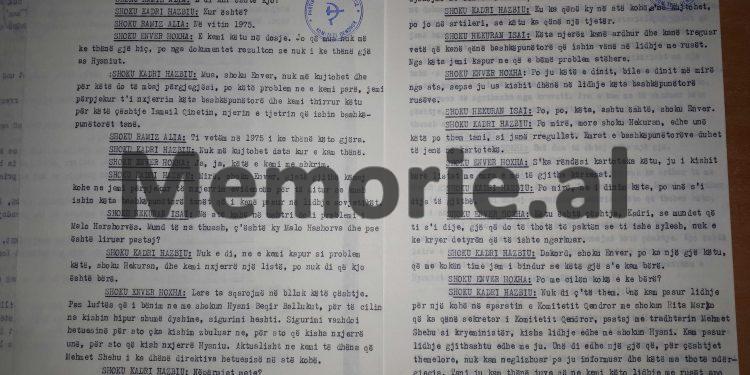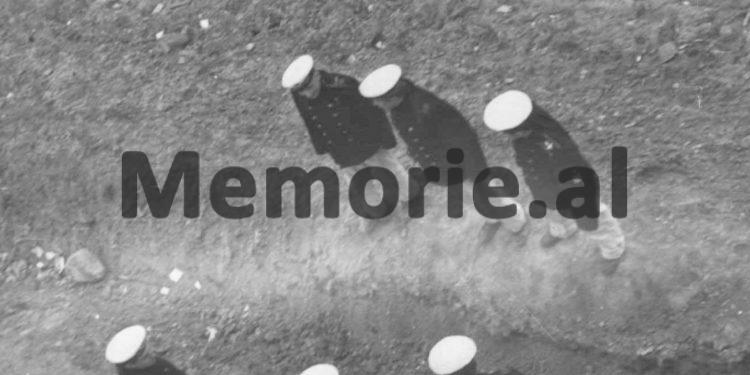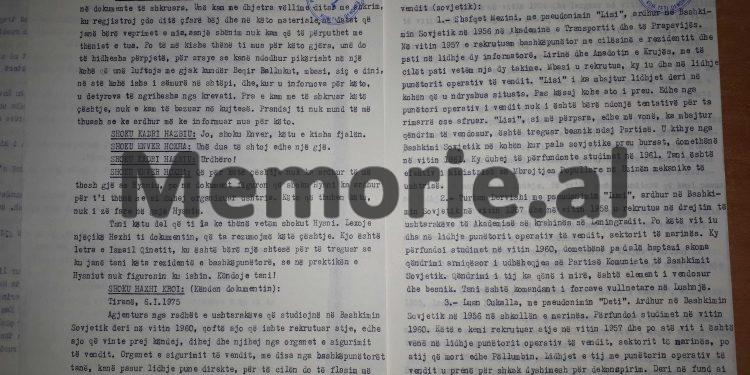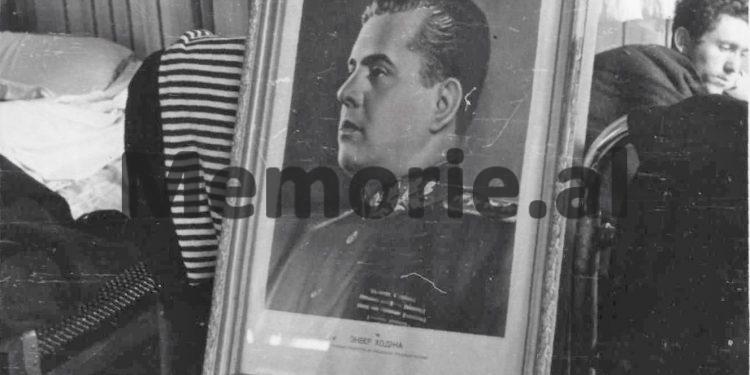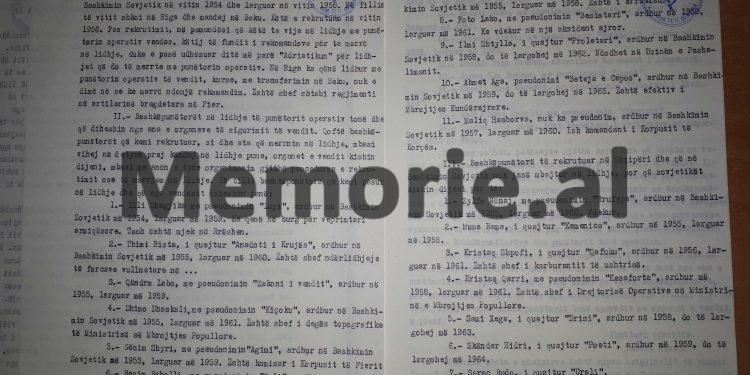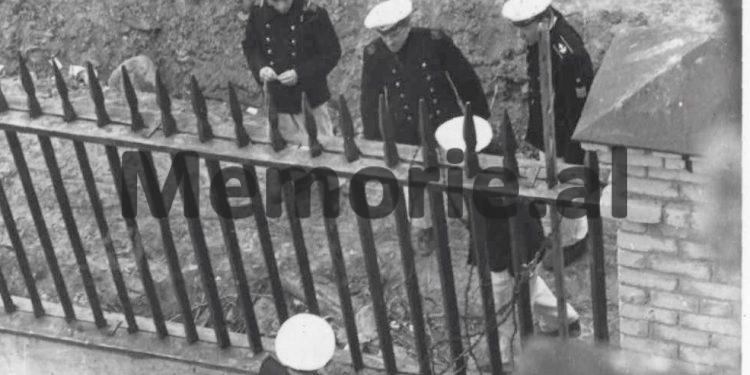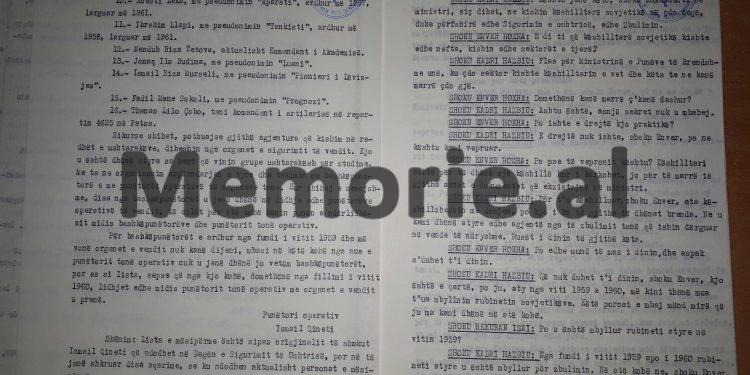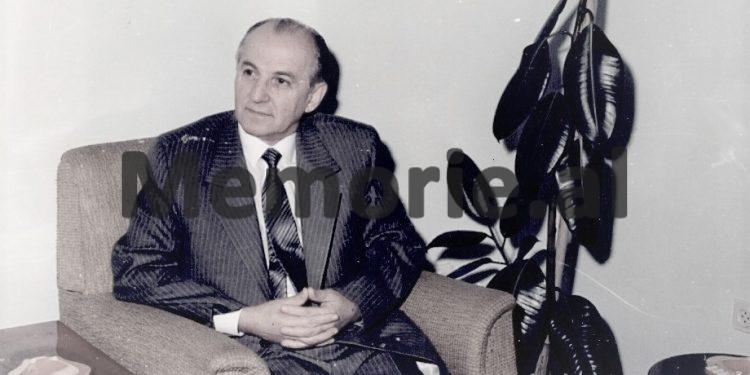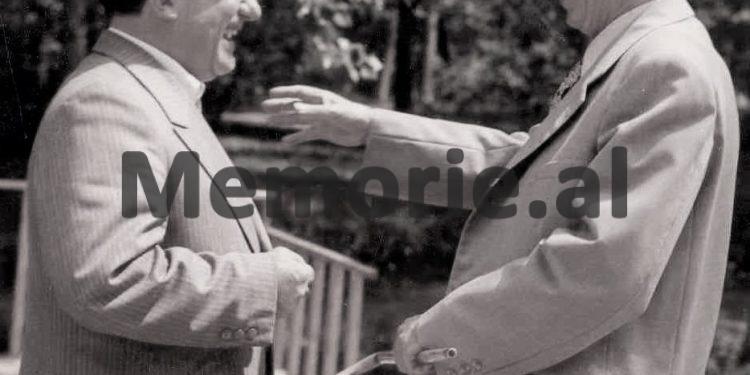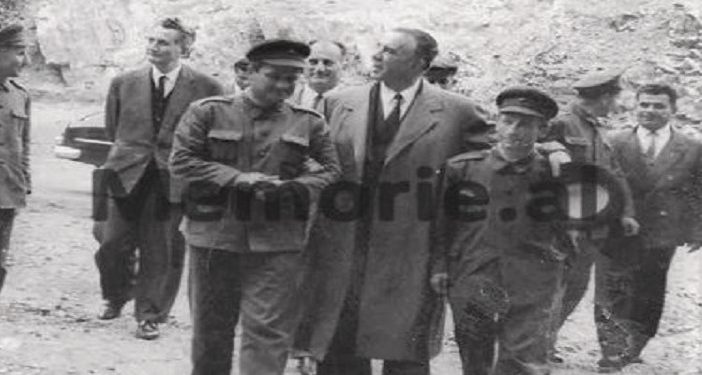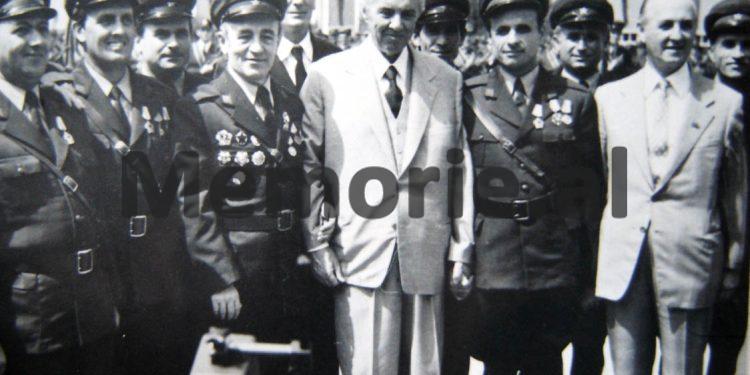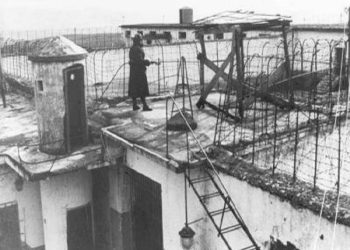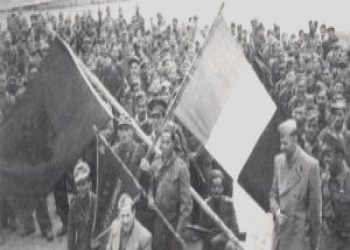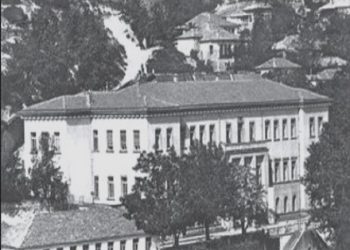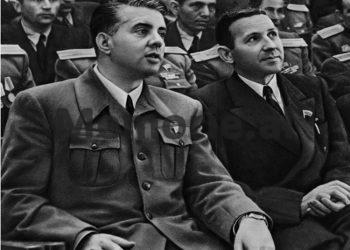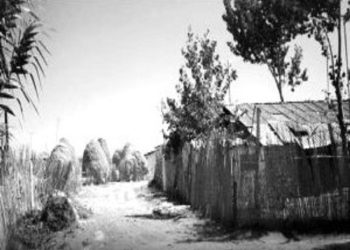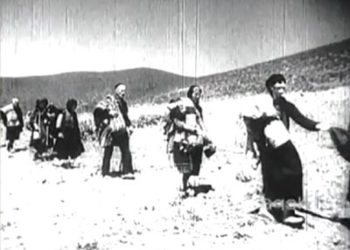Dashnor Kaloçi
The fourth part
Memorie.al publishes some documents issued by the Central State Archive (fund of the former Central Committee of the ALP), where there is a voluminous file with archival materials which bear the logo ‘Top secret’, which belong to the period of years 1981-1982, with reports, reports, evidence, information, minutes of the meetings of the Politburo and the secretariat of the Central Committee of the ALP, etc., starting from what was held to review and analyze the self-criticism of the former Prime Minister Mehmet Shehu in December 1981, because he had allowed the engagement of his son, Skënder, “with a girl who had some political fugitives in her family circle”, the marathon meeting of the Politburo on the afternoon of December 17 his year that lasted until the late hours of that night, where that problem was discussed with the debates and discussions of all members who “crucified” former Prime Minister Shehu, the meeting of the morning of December 18, after the news that Prime Minister Mehme Shehu had killed himself, the marathon meeting of the Secretariat of the Central Committee of the ALP on September 20, 1982, with the topic: “Analysis of serious mistakes of Kadri Hazbiu, committed during the period when he was deputy minister and minister of Internal Affairs “, where Enver Hoxha initially launched accusations against Kadri Hazbiu, luring him as a” loyalist of the Party “, (in order for him to” open the heart of the Party “, speaking against former Prime Minister Mehmet Shehu) , where at the beginning of his speech, Enver said: “After the coup in the army, we discovered the traitorous group in economics of Abdyl Këllez, Koço Theodhos and Kiço Ngjela with friends. We also discovered this group here; it was not discovered by the State Security. The same can be said about the discovery of the group of Fadil Paçrami, Todi Lubonja and a number of other people connected with them, such as Ismail Kadareja with friends, the Security did not reveal, but that hostile work was discovered by the Committee Central ”, etc.! All these and other documents with the logo ‘Top secret’, will be published in several issues in a row, exclusively by Memorie.al
Continued from the previous issue
The document with the minutes of the meeting of the Secretariat of the Central Committee of the ALP, on the topic “Analysis of serious mistakes of Kadri Hazbiu, committed during the period when he was Deputy Minister and Minister of Internal Affairs”, held on September 20, 1982
Top secret
MEETING OF THE SECRETARIAT OF THE CENTRAL COMMITTEE OF THE ALP DATE SEPTEMBER 20, 1982
This meeting was convened by Comrade Enver, where comrades Adil Çarçani and Hekuran Isai were also invited to analyze the serious mistakes of the member of the Politburo, Kadri Hazbiu, committed during his time in the Ministry of Internal Affairs, as Deputy Minister of then minister.
COMRADE KADRI HAZBIU: When?
COMRADE RAMIZ ALIA: Do you know when this is?
COMRADE KADRI HAZBIU: When is it?
COMRADE RAMIZ ALIA: In 1975.
COMRADE ENVER HOXHA: We have it here in the file. Not that you did not say anything to me, but from the documents, it turns out that you did not say anything to Hysni either.
COMRADE KADRI HAZBIU: I, comrade Enver, do not remember and I will be responsible for this, but we have called Ismail Qineti here for this issue, each other who were our collaborators.
COMRADE RAMIZ ALIA: You only said these things in 1975.
COMRADE KADRI HAZBIU: I do not remember the date when I said it.
COMRADE ENVER HOXHA: Here, here we have this in writing.
COMRADE KADRI HAZBIU: Well, Comrade Enver, all this time we have been trying to extract evidence to find out whom these collaborators of ours were who had ties to the Soviets.
HEKURAN ISAI COMRADE: At that time, Malo Harshova had a problem in the army. Can you tell us, what is this Malo Harshova and why was he released then?
COMRADE KADRI HAZBIU: I do not know, we have taken this as a problem, Comrade Hekuran and we have issued a list, but I do not know that this has been done.
COMRADE ENVER HOXHA: Let us clarify this issue in the block. After the war we had with comrade Hysni, Beqir Balluku, about whom we had many doubts, the Security was silent. The security continued the investigation for what we had discovered, for what I had extracted, for what Hysniu had extracted. Currently we have data that Mehmet Shehu gave instructions to the investigation at that time.
COMRADE KADRI HAZBIU: Through me?
COMRADE ENVER HOXHA: Not through you, but through the relevant section, that only in this or that direction he wanted the coup plotters to be questioned, but not in the other direction. Comrade Hysni at that time had the question of a cadre, who this was, it is not known, but we suspect that it must have been Malo Harshova.
COMRADE KADRI HAZBIU: Where was he at that time, I do not remember, but not in the artillery, that there was another here.
HEKURAN ISAI COMRADE: These people have come and shown themselves to have been collaborators who had been put in contact with the Russians. From these we are caught making it a problem then.
COMRADE ENVER HOXHA: Yes, you knew this; you even knew it better than them, because you had given these collaborators to the Russians.
COMRADE HEKURAN ISAI: Yes, yes, these, that’s right, Comrade Enver.
COMRADE KADRI HAZBIU: Well, you took Comrade Hekuarn, I am also saying this now, what are the rules. Contributor names must be in the File.
COMRADE ENVER HOXHA: It does not matter the file here, you had made the lists with names and with all the requests.
COMRADE KADRI HAZBIU: Well, we knew these, but I did not know them all.
COMRADE ENVER HOXHA: Here is the issue, Kadri, that you may not have known, which means at least that you were blind; you did not perform the task that was assigned to you.
COMRADE KADRI HAZBIU: Agreed, Comrade Enver, there is something here, that with my head, I am convinced that I did not do this.
COMRADE ENVER HOXHA: But with what head did you do it?
COMRADE KADRI HAZBIU: I do not know what to say. I had connections for a while in the Central Committee apparatus with Comrade Rita Marko who was the Secretary of the Central Committee, and then with the traitor Mehmet Shehu as Prime Minister, I also had connections with Comrade Hysni. I also had connections with you. I know one more thing that, for the basic issues, I have not neglected without informing you and this is what my conscience tells me. Now I have told you that we have these connections with the Russians or I have not told you, I trust your memory.
COMRADE ENVER HOXHA: No, here I do not base it on memory, but on written documents. I have dozens of volumes of written diary, where I record every day what I do and in these materials, on the dates my actions are done, I have no note to match your sayings.
If you had told me about these things, I would have jumped up, because they happened exactly at a time when I was fighting with blood against Beqir Balluku, because as you know, at that time I was sick at home, and when I was informed of these, I was compelled to get out of bed.
So I have to write this issue, I do not have it based on memory. Therefore, you cannot tell me that you came to inform me of these.
COMRADE KADRI HAZBIU: No, Comrade Enver, I had the floor here.
COMRADE ENVER HOXHA: I want to add one more thing.
COMRADE KADRI HAZBIU: Order!
COMRADE ENVER HOXHA: Even Hysni did not come to tell me anything about this issue, but the document states that Comrade Hysni came to tell him how the Army should be organized. Hysni does not say what is said here at all.
Now it turns out that you only told Comrade Hysni. Read a little Haxhi to the document, to summarize this issue. This is the letter of Ismail Qineti, where an addition has been made to show where these residents and collaborators are now, that in Hysni’s practice, they did not figure out where they were. Sing now!
COMRADE HAXHI KROI: (Sings the document): Tirana, 6.1.1975
The agency from the ranks of the military studying in the Soviet Union until 1960, both the one that was recruited there and the one that came from here, was known and recognized by the country’s Security organs. The National Security organs, with some of our collaborators, had direct working relations, which we will talk about below, while for the collaborators you had connections with or not, they, the National Security, knew that they were.
COMRADE ENVER HOXHA: The security of the country is Russian.
COMRADE HAXHI KROI: Yes (continues reading):
- “Collaborators in relation to the country’s (Soviet) Operational Workers:
- M. Sh., with the nickname “Oak”, came to the Soviet Union in 1956 at the Academy of Transport and Background. In 1957 we recruited an associate as a resident and he had two informants, “Lirina” and “Anadotin” of Kruja, with whom he had only a couple of meetings. After being recruited, this was given in relation to the country’s operational worker. “Lisi” has maintained ties until the time when the situation changed. After this time they cut them. Even by the country’s Operational Worker, no attempt has been made to retrieve or approach him. “Lisi”, both before and after, has maintained a firm stance, has been loyal to the Party. He returned from the Soviet Union at the time when the Soviet side cut scholarships, namely in 1961. He had to complete his studies in 1961. He is now an effective member of the Ministry of National Defense at the Army Mechanical Plant.
- T. D., nicknamed “River”, came to the Soviet Union in 1957 and in 1958 was recruited to the military of the Leningrad Crab Academy. The same year, he was linked to the country’s Operations Officer, the Navy sector. This ended hostilely in 1960, meaning that the hostile attitude of the leadership of the Communist Party of the Soviet Union had not yet become clear. His attitude has been good; he is a determined and loyal element. He is now the commander of the Volunteer Forces in Lushnja.
- L. C., nicknamed “Sea”. Arrived in the Soviet Union in 1956 at the Navy School. He finished his studies in 1960. We recruited him there in 1957 and in the same year he was put in contact with the country’s Operational Worker, the Navy sector, the same one who also took the “Pigeon”. His ties to the country’s Operational Worker were severed on suspicion of declassification. Until the end he remained unconnected by the country’s Operational Worker. He returned to Albania in 1960. He is the commander of the Electric Submarine Group.
- T. M., nicknamed “Adriatic”, came to the Soviet Union in 1954 and left in 1958. At the beginning of the year he went to Riga and then to Baku. This was recruited in 1956. After the recruitment, unable to come to terms with the local Operational Worker, I recommended the latter to get in touch, having instructed “Adriatic” days ago about the connections he would receive with the Operational Worker. In Riga he was associated with the country’s Operational Worker, and with the transfer to Baku, we do not know if he received any recommendations. He is the Chief of Staff of the Regiment in the Coast Guard in Fier.
- Collaborators in connection with our Operational Worker and who were known by the country’s security organs. Whether the collaborators we recruited, as well as those who got in touch, after being put in office from here in employment, the local authorities were aware, after through them we organized the whole procedure that we had in the relationship and that the locals knew were:
- Y. Xh., Nicknamed “Lupi”, came to the Soviet Union in 1954, left in 1959. He was in prison for hostile activities. He is now a doctor in Rrëshen.
- Th. R., called “Anadot of Kruja”, came to the Soviet Union in 1955, left in 1960. He is the Head of Liaison of Voluntary Forces in…!
- Q. L., with the nickname “Country custom”, came in 1955, left in 1959.
- Dh. Dh., with the nickname “Kiçoku”, came to the Soviet Union in 1955, left in 1961. He is the head of the Topographic Branch of the Ministry of People’s Defense.
- G. Sh., with the nickname “Agimi”, came to the Soviet Union in 1955, left in 1959. He is a commissar of the Fier Corps
- B. B., nicknamed “Deli”, came in 1954, left in 1957. He is sick of nerves.
- H. K., nicknamed “Methodist”, came to the Soviet Union in 1955, left in 1958. He is a fugitive.
- F. L., nicknamed “The Believer”, who came to the Soviet Union in 1958, was to leave in 1961. He died in a plane crash.
- I. Sh., Called “Proletarian”, who came to the Soviet Union in 1958, would leave in 1962. It is located in the Pashaliman Factory.
- A. A., nicknamed the “Battle of Cepo”, came to the Soviet Union in 1959, would leave in 1965. It is effective Air Defense.
- M. H., no pseudonym, came to the Soviet Union in 1957, left in 1960. Former commander of the Korça Corps.
- The collaborators recruited in Albania and in the Soviet Union were not kept in touch, but that the Soviets were aware of:
- M. N., nicknamed “Lightning”, came to the Soviet Union in 1955, left in 1960. Dead.
- M. R., called “Kamenica”, came in 1955, left in 1958.
- K. Sh., Called “Qafuku”, came in 1956, left in 1961. He is the Chief of Fuel of the Army.
- K. Q., with the nickname “Kasaforta”, came in 1958, left in 1961. He is the Chief of Operational Directorate in the Ministry of National Defense.
- S. X., called “Drini”, who came in 1958, would leave in 1963.
- S. H., nicknamed the “Poet”, who came in 1959, would leave in 1964.
- S. B., called the “Urals.”
- K.K., nicknamed “The Mechanic”, came in 1959, would leave in 1965.
- A. B., nicknamed “Laboratory”, came in 1959, and left in 1965.
- A. L., with the nickname “Aparati”, came in 1957, left in 1961.
- I. Ll., with the nickname “Tankist”, came in 1958, left in 1961.
- M.T., currently Commander of the Academy.
- J. B., nicknamed “The Lion”.
- I. M., with the nickname “Pioneer of the Movement”.
- F. S., under the pseudonym “Prognosis”.
- H. Ç., Now commander of the Artillery in ward 4625 in Patos.
As can be seen, almost all the agencies we had in the ranks of the military were known by the country’s Security organs. This is given to them whenever groups of soldiers come for studies.
With them, in their organization, distribution and meeting with the collaborators and the Operational Workers of our bodies, when it was deemed necessary, some of the collaborators were given in relation to the Operational Workers of the country, who at that time were doing the work of liaison, between collaborators and our Operational Worker.
For the collaborators who came from the end of 1959 and later, the local authorities are not aware, because at this time by our Operational Worker, they were not given, not only collaborators, but also as a list, because since then that is, from the beginning of 1960, the ties between our Operational Worker and the local authorities were severed.
Operational Workshop
Ismail Qineti
Note: The above list is according to the original of Comrade Ismail Qineti, located in the Army Security Branch. Also in it, some explanations are written, where the above persons are currently located. Memorie.al
Deputy Chairman of the Army Security Branch
Përparim Buçari
The next issue follows




